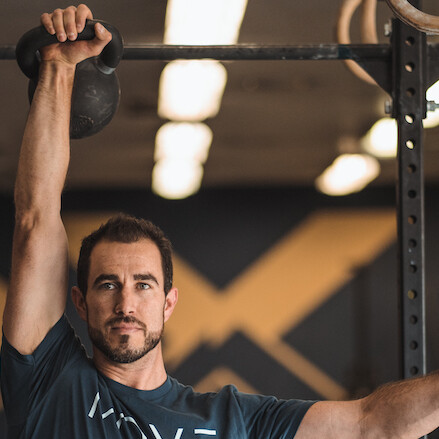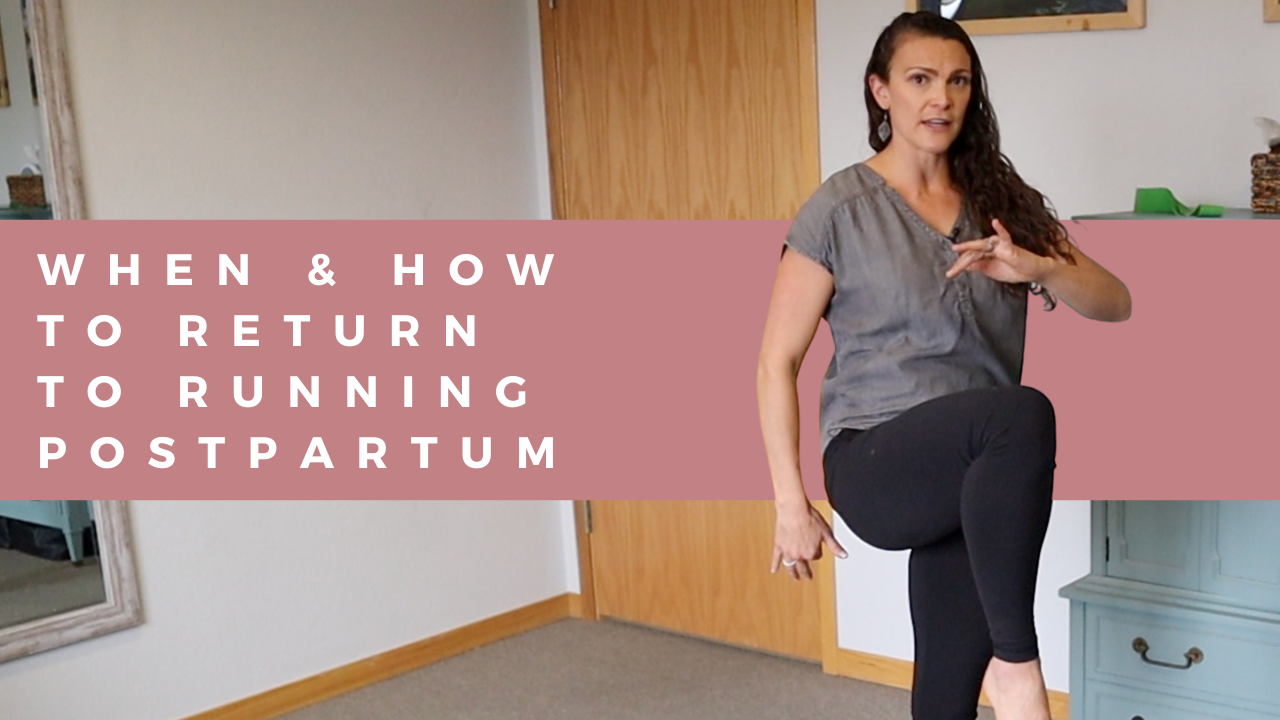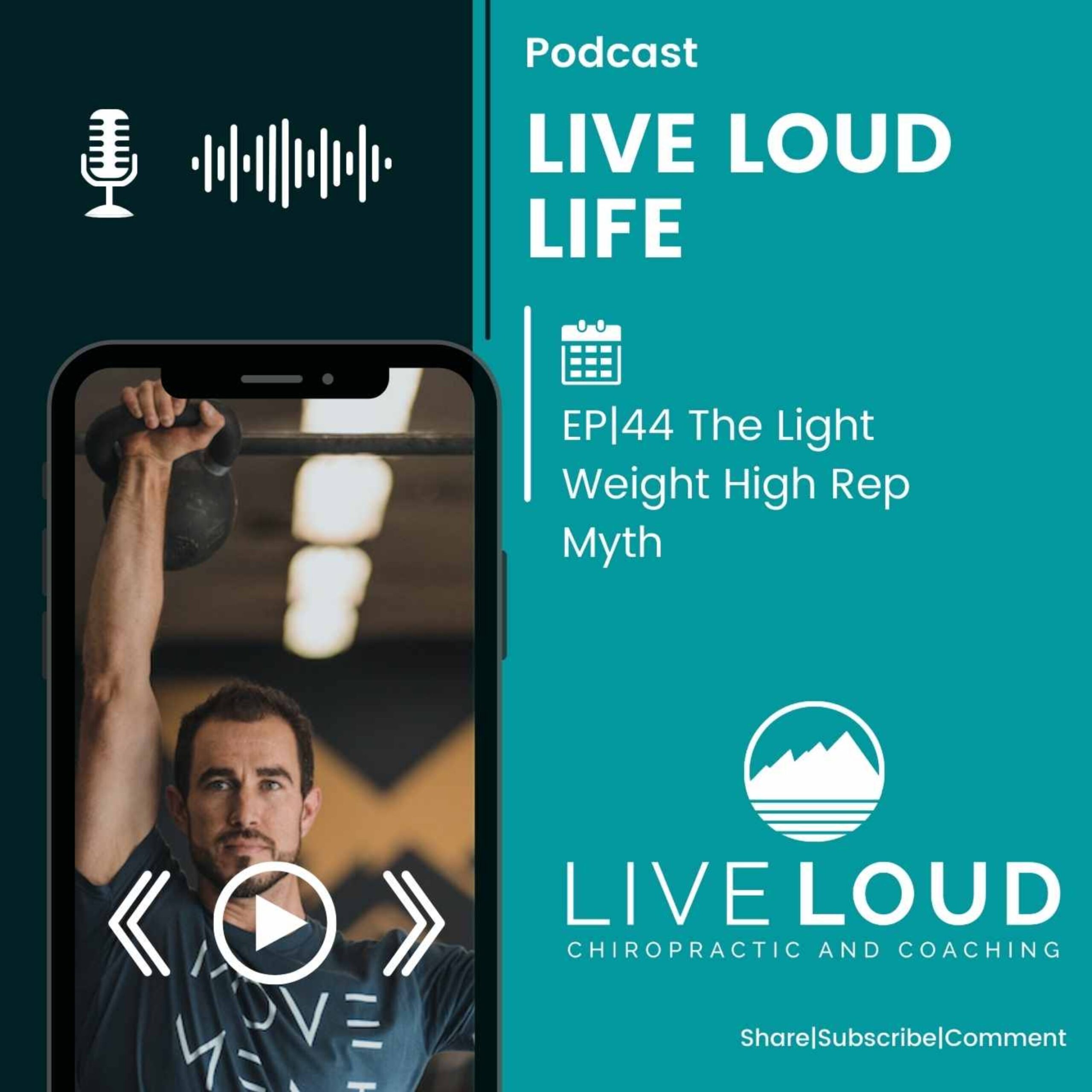Live LOUD Life PodcastLafayette Colorado
Episode 87
The Top Two Exercises for Shoulder Pain
With Dr. Antonio Gurule
EPISODE HIGHLIGHTS:
[0:09] The anatomy of the shoulder
[1:51] Why is the shoulder joint so important?
[3:36] Banded exercises for shoulder pain.
[4:16] What is the role of the rotator cuff in shoulder pain?
[6:30] Introduction to the TRX Rows exercise.
[8:18] Strength length tension relationship
[10:17] When you deal with proper stabilization, you see shoulder issues melt away.
Subscribe to my YouTube channel here: https://www.youtube.com/c/LiveLoud
Visit the website: https://www.lifeloudlife.com
Like the Facebook page: https://www.facebook.com/liveloudchiropractic/
Follow on Instagram: https://www.instagram.com/live.loud.life/
Guiding you to the adventurous life you were made for!
.
If you dig this give it a like ❤️, if you’re loving it let me hear you with a comment 🗣👂, and if you know it will help someone or anyone out please share 👥📲
Live Loud Chiropractic and Coaching Top Chiropractor and Physical Therapy in Lafayette Colorado Serving Boulder County Boulder, Longmont, Louisville, Erie, Broomfield, and Arvada Colorado
About Dr. Antonio Gurule

Background:
- Father
- Doctor of Chiropractic
- Owner of Live LOUD
- Personal Trainer & Health Coach
Check Out Some of Our Other Blog Posts and Podcast Episodes
The Light Weight High Rep Myth EP|44
Podcast,Rehab & Pain/Injury Recovery
February 16, 2022
0 Comments29 Minutes
Anthony Gurule 00:00
Hey what’s up guys, welcome back to another episode of the Live LOUD Life podcast. My name is Dr. Antonio, I’m your host of the Live LOUD Life podcast. My wife and I, we co-own Live LOUD Chiropractic and Coaching here in Lafayette, Colorado. We are just outside of Boulder, Colorado in Boulder County. And our mission is to help families. We want to help make families stronger, so that we can build a stronger community. We want to help guide you to the adventurous life that you and your family were meant for. And we do this through chiropractic and coaching. chiropractic, obviously being more of a hands on approach, more of a clinical conversation, clinical diagnostics, but the coaching aspect is really what we believe is, you know, the foundation of what our system methodology, whatever you want to call it is, because a lot of this comes around through just coaching suggestions and recommendations. also, you know, obviously within that comes into clinical prescriptions of certain things to eat or supplements, so on and so forth. But it’s coaching a lifestyle, it’s coaching, it’s coaching a philosophy and a foundation about how to live an active healthy life as an individual, and setting an example of a healthy active life for your family, for your immediate family, for your friends, and more importantly for your community. So stronger families to make a stronger community as a whole would be a win win, right? And that’s what we want to be able to do. we want to be able to help fill in the gaps in the holes that you’re maybe not getting from, from other roles and conditions.
Anthony Gurule 01:43
And today that’s in particular where we’re going to talk about. it’s going to be a little bit more of a shorter episode because this is more of a quote unquote, you know, just discussion around how to lay out a framework and a better understanding of how to work out or what exercises are safe or maybe not safe during pregnancy. This is a very, very common question that we get.
Anthony Gurule 02:12
My wife Nichelle has created a mini course that has some workout ideas, recommendations, and prescriptions than laid out into a workout. She guides and educates other clinicians on how to broach this topic as a chiropractor, how to better serve prenatal patients through chiropractic care, but also exercise recommendations and prescriptions, having recommendations with other personal trainers within the community whether that’s CrossFit whether that’s Orange Theory, chatting with coaches and owners and saying hey, if you have prenatal patients and they’re having these types of symptoms, or this has happened, here’s some better recommendations, not modifications. We call them lateralizations–you’re just you know, you’re doing something something different or something else we you know, we borrow that term from Charlie Weingroff, who’s a physical therapist and strength conditioning coach. But it also and also doulas, right, doulas and midwives and OBs who are directly involved with the prenatal process from nearly conception all the way through, having this conversation. we know that exercise is important during pregnancy,
Anthony Gurule 03:19
There are so many different studies that talk about the benefits of exercising during pregnancy, not only for the mom, but also for baby, which is quite interesting. They’re seeing increased cognitive-what’s the word I’m looking for? Excuse me, their cognitive output as a as an as a child through as they age is actually better from moms that actually worked out during pregnancy.
Anthony Gurule 03:50
Now this is tough, right? How do you define working out or exercise? it’s different for everybody. But we want to, and we encourage that, and yet we’re sympathetic to the different stages of life, aches and pains, so on and so forth, which obviously would limit what you can do from an exercise perspective. So you know, it’s a bit of a gray area on determining what is working out? what is exercise? What are the physical guidelines or recommendations for pregnancy? And without getting into the like, nitty gritty detail of every single thing. And obviously, every potential situation, if you had this versus this, what could happen? we’re not gonna be able to do that. What we just want to lay out is what is what are we trying to accomplish here, and we want to encourage you to stay as physically active as possible.
Anthony Gurule 04:41
And one of the things that constantly comes up is, well, should you add something in that you have not already been doing? Let’s say for instance, someone just through the stages of life with work and kids or whatever that is, they were not able to work out as much before they got pregnant, but now that they’re pregnant, whether they have more time or they understand the importance of exercises during pregnancy, well, would we say, “Well, you haven’t been exercising, so you shouldn’t do too much.” No, that doesn’t, that doesn’t really make sense. Now, we would encourage not to do too much, there’s obviously, you know, a too far swinging the pendulum of the other way. But we wouldn’t say “no, don’t exercise because you weren’t doing something before,” we just have to find those first few stepping stones to help them start to gain some momentum. and help hold their hand, if you will, So that their technique and they feel confident about lifting, or how far they’re walking or whatever that is. And that’s an important topic, because a lot of times people want to add things in, but they weren’t quite ready or weren’t doing them before. And they then assume that they’re not able to do them at all. So you do have to take that in consideration, there is a ton that you can do, and that you can still add, even though you weren’t doing them prior to pregnancy.
Anthony Gurule 05:54
Now on the big questions is, is it safe? you know, outside to contact sports, or different things like that the majority of what you’re going to do is safe for pregnancy, right? Rock climbing, we have pregnant patients that have been rock climbing before, obviously, there’s a certain inherent risk with certain sports or activities. You know, you could fall off riding your bike, you could fall over running, right, so we’re not encouraging any of these by any means. We’re just kind of, you know, setting some suggestions, if you will. And you have to take into consideration.
Anthony Gurule 06:31
Now, there are certain things to consider when you’re talking about like weightlifting, and how heavy and the intensity that you’re doing. And if you’re doing Valsalva movements, which is essentially holding your breath to maintain a more rigid or stiff torso, as you’re seeing changes in blood volume and blood pressure, you know, you do have to take that in consideration. And that is again, of course a conversation with your provider that is managing your, your pregnancy, but we recommend Mama’s weight lift, or do resistance training. During pregnancy, again, we talked about about load management and the intensity and things like that, but you can still lift and do fairly intense things. And it’s a fairly as a you know, as a scale and a wide range during pregnancy and see a ton of benefit from that. Now, are we trying to hit one rep maxes and PRs during pregnancy, I mean, some would argue yes, but I would argue, why, that’s not really an accurate representation of what your strength is anyways. So you know, you do have to to kind of keep manipulating the numbers and the weights and the intensity and the sets and reps in order to do it. But weightlifting and resistance training is safe, and it is effective. Now, outside of that, there’s not a lot of unsafe things to do, again, outside of contact sports, or things that would elicit, you know, potential trauma to you or baby based on impact we’ve had, again, not our recommendations, but some have tried very just easy scheme, because they’re in the winter months, and they wanted to and they felt very confident about not falling. So you know, you have those types of things.
Anthony Gurule 08:16
Overall, again, we’re talking about movement. You need to move, and it’s good to get your heart rate up. And it’s good to breathe hard. So that doesn’t mean just because you’re pregnant, you can’t do HIIT training or circuit training or CrossFit or Orange Theory. But you do have to listen to your body and understand certain signs that would indicate that things might be too much, right? Now those are going to be different for everyone, but a lot of this comes down to you know, lightheadedness, you know, breathing too hard. Certain aches and pains within lower extremity, chest, abdomen, so on and so forth would be obviously like your more extreme ones. If you’re becoming pale or anything like that, I mean, again, these are the same criteria, though, that would be if someone else was working out or training too hard. So it’s realistically the same thing. It’s just that your threshold level for all those most likely have gone down. And depending on what type of an athlete you were before, you’re going to be maybe a little frustrated that you’re not able to do the things you were able to do previously, which makes sense. But if you’re someone who wasn’t exercising before, you’re probably going to be a little bit more hyper aware of that, of just feeling that shortness of breath or that uneasiness. So again, we’re not saying you have to push through that because we’re not trying to set yourself up for a strength and conditioning program to increase your metabolic capacity to increase your strength and conditioning during pregnancy. We’re trying to help you maintain a healthy active pregnancy.
Anthony Gurule 09:54
Now, walking. walking is great. but in general, we encourage you to do something above and beyond walking. Obviously, again, certain things would dictate that you would not be able to do so. And this is again, any exercise. Any exercise that you do during pregnancy needs to be consulted with and work through and have a conversation with the primary physician who is managing your pregnancy, whether that’s your nurse practitioner, your midwife or your OB or obstetrician, right. But we would encourage more than just walking. walking is fantastic, but that’s kind of like your baseline minimum, right? Just like our activities, or recommendation activity guidelines. We want a few days a week of where we’re kind of just doing this steady state getting our steps in, you know, kind of pushing ourselves, we’re huffing and puffing, but still just kind of at that conversational level, but you’re not really getting a lot of benefits outside of that.
Anthony Gurule 10:55
So if you’re just walking, high five. kudos. can you do something more? Can you do some bodyweight squats? Can you do some bodyweight, you know, good mornings? can you do some walking lunges? do you have a suspension training, we’re able to do some bodyweight rows? Do you have some bands that you can do some rows with? You know, there’s a lot that you can do that allows you to get a little bit more out of that. Now, again, this all comes back down to preferences of exercises that you like to do, because that’s gonna allow you to maintain the most consistency, but then also the intensity that you like to do. And we do encourage having an open mind and at least being willing to try some high intensity things that allow you to still get your heart rate up a little bit. And it’s okay to lift more than five or 10 pounds. And not saying that that is a bad thing. There’s programs out there where it’s all directed around that where it’s lighter weight, high rep, but I just don’t want individuals and mamas to feel like they’re not able to do more and or being ashamed because other people are just saying they should back off because they’re pregnant. “why would you need a lift that much?” It fits within your strength, and your comfort, and your wheelhouse, that is totally fine.
Anthony Gurule 12:05
Again, you if you’ve been doing that enough, you understand the risk reward ratio and having a conversation with your practitioner has driven us to kind of help navigate and guide as you start to get further through pregnancies, what things maybe we need to change or manipulate. But that’s totally fine. Now outside of that, the question around safe also comes up around core exercises. diastasis recti, pelvic floor strength, so on and so forth, we want to enhance the capability of understanding how to control tension within your abdominal wall and your pelvic floor through pregnancy, because the pressure is increasing due to baby taking up more space. But we’re not we’re not necessarily we’re not gaining more strength, right.
Anthony Gurule 12:45
And so what a lot of people assume it’s when we’ve seen this, is “I don’t want diastasis. So I’m doing more core work to prevent diastasis from happening.” diastasis recti will happen in 100% of moms, it’s estimated at the week 35 Everyone will have some form of it. Now it is technically not a quote unquote diagnosis, though, until 12 weeks postpartum, because it is a normal thing that everyone will get. So you can’t diagnose someone with something that everyone will get–doesn’t make sense, right? So after that, though, if you still have weakness or spacing issues, then we can have a you know, a stronger conversation about putting a diagnosis on that.
Anthony Gurule 13:26
But what we’re trying to enhance and help is what exercises are quote unquote, not safe versus unsafe, but adding too much pressure or tension into the abdominal wall or the pelvic floor and creating more laxity. again, as that pressure for as baby’s growing starts to put more pressure on the pelvic floor and the abdominal wall. If you’re doing more things that increases the pressure within the within the abdominal cavity that’s going to push on that separation even more and/or push on that pelvic floor even more, creating potential incontinence or prolapse issues and/or more bulging and doming within the abdominal wall stretching out that separation or that gap even further, potentially making the recovery process more challenging or slightly longer. I’m not saying that it will but potentially, so we do have to take that in consideration. So we go through activation exercise of the pelvic floor, of the abdominal wall so that you better understand how to control those pressure increases while you’re lifting or exercising so that you simply can stay at a management level.
Anthony Gurule 14:28
And that in turn, helps you get through pregnancy of understanding how to lift up your older kiddo, having to lift up dog food or anything like that. It’s just managing and controlling pressure. So there’s really not anything that I would say that safe or unsafe. Now, things that we would advise against for core exercises is sit ups or crunches. You know a lot of those things that create like hanging knee raises and different things like that during pregnancy. A lot of those things that create a lot of intra abdominal pressure and tension. and especially during a flex position, that tends to put a lot more pressure on the abdominal wall, the separation where diastasis will occur as well as the pelvic floor.
Anthony Gurule 15:09
So, you know, while we never say never, there’s definitely a category of things that we definitely urge against because the risk/reward benefit and again, risk not being “injured,” But risk of potentially putting more pressure and making the recovery process on the other side harder, is not is not something that we find to be as advantageous. But you can still get the benefits of quote unquote, core exercises through full body movements such as goblet squats, such as deadlifts, you know, depending on the phase that you’re in, push ups, which are, you know, a dynamic plank. or being able to do a TRX row, which is a reverse plank as you’re just lifting yourself up. three point rows where you’re on, you know, two hands or doing like a row on a bench, where you’re in a tabletop position that’s adding anti rotation exercises. So there’s a ton that you can do that still highlights and isolates, the core isolates, sorry. that highlights and will emphasize core activation, but through a full body compound movement. And what’s great about that is during pregnancy, depending on your energy levels, it’s hard to do all the little isolated accessory and all these separate exercises as it is. So it’s kind of nice being able to combine everything, so you get more bang for your buck, especially if you’re a parent and you’re on and you’re on baby number two or three, right?
Anthony Gurule 16:31
So what exercises are safe for pregnant women to do? All are. reduce or eliminate for sure contact activities, different things like that. the increased risk activities of you know, trauma and things like that. Outside of that you’re managing pressure, I would definitely encourage reducing anything that’s heavy lifting, that’s, that’s requiring you to do Valsalva moves, you’re having to hold your breath for an extended period of time. that changes blood pressure, so on and so forth. But outside of that, Pregnancy is a completely safe time to do all exercises. we definitely as we highlighted, urge and encourage, you know, certain things over other ones just for you know, added bang for your buck or full body movements, so on and so forth. And that, but outside of that you are free to do what you want.
Anthony Gurule 17:19
If you want guidance, though, you know, there are there are trainers out there that work specifically with prenatal patients. we would love to be able to have that conversation with you if that’s something you want to bounce back or navigate. Because we do want to encourage as much as we can. A very, very active pregnancy through exercise working out or however you want to describe that. So if you found this beneficial, please like share, subscribe. if you’re pregnant, I hope you can utilize this and take some of the information for you and yourself. If you have anyone else you know… a relative a family member, a friend who is pregnant and they’re unsure they’ve been you know asking this question what things I don’t know what things I can do. I don’t know if it’s safe for baby share this video with them. We’d love to be able to provide a better frame of reference and or context to be able to ask better questions so that they can find the workout program or the movements that work best for them during their pregnancy. Until next time guys live loud .if you’re currently pregnant, Congratulations, and we look forward to helping and serving in the future.
–




